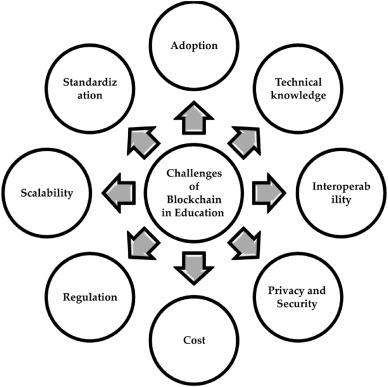How Implementing Blockchain in Educational Institutions Is Revolutionizing Academic Records
The digital revolution is reshaping traditional systems worldwide, and education is no exception. With the rise of blockchain technology, educational institutions now have a powerful tool to transform how academic records are managed, stored, and verified. In this comprehensive guide, we’ll uncover how implementing blockchain in educational institutions is revolutionizing academic records, highlight its numerous benefits, and showcase real-world applications that inspire confidence for the future.
Understanding Blockchain and Its Relevance in Education
Blockchain,often associated with cryptocurrencies,is a decentralized,secure digital ledger capable of recording transactions and data in a obvious,tamper-proof manner. These core attributes make blockchain an ideal solution for managing academic records in educational institutions.
- Decentralized Storage: Academic records are stored across a distributed network, minimizing risks of data loss or manipulation.
- Immutability: Once added, records cannot be altered or deleted, guaranteeing data integrity.
- Transparency: all stakeholders, from students to potential employers, can verify the authenticity of credentials with ease.
The Shortcomings of Traditional Academic Record Systems
Traditional methods of record-keeping—often paper-based or centralized digital databases—present several challenges:
- Susceptibility to fraud and forgery
- Inefficient verification processes
- Data privacy concerns
- Lack of standardization across institutions
- High administrative costs and resource consumption
The implementation of blockchain in academic record management addresses these pain points, setting the stage for a more secure, reliable educational system.
How Blockchain Is transforming Academic Record Management
Blockchain-based academic records introduce several breakthroughs that modernize the educational landscape:
1. Tamper-Proof Academic Credentials
The immutability of blockchain technology prevents any party from altering records retroactively. Students and alumni can thus be confident in the integrity of thier transcripts and diplomas.
2. streamlined Verification Process
With blockchain, institutions issue digital credentials that can be instantly verified by employers, government agencies, or other schools globally—eliminating paperwork and long wait times.
- Time-saving for registry staff and students
- International interoperability
- Automated cross-institutional recognition of credits and degrees
3. Enhanced Data Security and Privacy
Data breaches are a growing problem in education. Blockchain’s cryptographic nature ensures sensitive personal data is securely stored, with access regulated via private keys and permissions.
4. Empowered students (Self-Sovereign Identity)
Blockchain empowers students through self-sovereign identity: individuals control who can access their academic records.This fosters autonomy and reduces risks of data misuse.
Benefits of Blockchain in Educational Institutions
Institutions integrating blockchain into academic record management enjoy significant advantages:
- transparency: All record-keeping actions are permanently logged and auditable.
- Efficiency: Reduces administrative overheads and costs by automating processes.
- Interoperability: Standardizes academic credentials, streamlining transfers and recognition.
- Reduced Fraud: Digital records are virtually impractical to forge.
- Portability: Records can travel with students as they move between schools or countries.
- Lifelong Learning Support: Blockchain can serve as a comprehensive, lifelong academic profile for each student.
Real-World Case Studies: Blockchain in Action
Theoretical advantages quickly translate into real-world success stories. Here are several educational institutions pioneering blockchain-based academic records:
MIT: Digital Diplomas with Blockcerts
The Massachusetts Institute of Technology (MIT) launched blockcerts—an open standard for blockchain digital diplomas.graduates receive a secure, verifiable digital version accessible anytime, anywhere.
University of Nicosia: Blockchain for Certification
Based in Cyprus, the University of Nicosia became the first institution to issue academic certificates on the blockchain, enhancing credential verification for its global student base.
National University of Singapore (NUS): Digital Credentials Initiative
NUS leverages blockchains to issue digital certificates, streamlining hiring and postgraduate admissions, while ensuring an added layer of trust and authenticity.
Practical Tips for Institutions Adopting Blockchain Technology
Considering a blockchain-based academic record system? Here’s a roadmap to prosperous implementation:
- Identify Clear Use Cases: Focus on pain points like transcript issuance, credential verification, or cross-institutional credit transfer.
- Choose the Right Blockchain Platform: Popular options include Ethereum, Hyperledger, or purpose-built platforms like Blockcerts.
- Ensure Regulatory Compliance: Stay up to date with evolving data privacy and educational regulations.
- Promote Stakeholder Engagement: Involve IT teams, administrators, faculty, students, and employers early in the process.
- plan Integration and Training: Seamlessly integrate blockchain with existing student information systems and train staff for smooth transition.
- Prioritize Cybersecurity: Implement robust encryption and access controls, and conduct regular audits.
first-Hand Experiences: Perspectives from Students and Administrators
”After MIT issued digital diplomas through blockchain, I could share my verified credential with employers instantly. No more waiting for paperwork or risking lost documents—my academic achievements are secure and recognized worldwide!”
— Jane, MIT Graduate
“As a registrar, blockchain transformed our verification process. We now process requests faster, and students are empowered to manage their own records. Fraudulent claims have virtually disappeared.”
— John, University Administrator
Future Trends: The Continuing Evolution of Blockchain in Education
Blockchain’s impact on educational institutions is only begining to unfold.Experts predict the technology will catalyze further innovations:
- Lifelong Learning Wallets: Comprehensive blockchain-based profiles recording all qualifications and micro-credentials.
- Decentralized Autonomous Universities: New institutional models powered by smart contracts and community governance.
- Global Academic Cooperation: Seamless cross-border transfer and recognition of learning achievements.
- Credentialing Beyond Academia: Integration with professional organizations and licensing bodies.
As adoption grows, blockchain in education is poised to foster unprecedented openness, security, and efficiency in academic record management.
conclusion: Embracing the Future of Academic Records
The implementation of blockchain in educational institutions heralds a new era of trust, efficiency, and accessibility for academic records. By leveraging this technology, schools and universities can ensure secure, transparent, and easily verifiable credentials, empowering students and reducing burdens on administrators. With real-world success stories and a clear path for adoption, blockchain is already revolutionizing education—making it the perfect time for institutions worldwide to embrace this transformational digital solution.
Are you ready to take the next step? Consider how your institution can benefit from the blockchain revolution in academic record management and begin forging a pathway toward a more secure, efficient, and student-empowered future.

